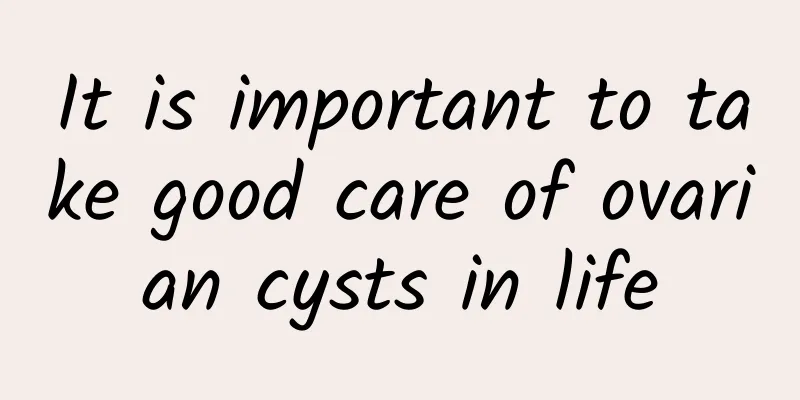What should a 40-year-old woman do if she has uterine fibroids?

|
If a 40-year-old woman is found to have uterine fibroids, she should not worry too much. Depending on the specific situation, she can choose regular check-ups or surgical treatment. Uterine fibroids are usually related to the level of estrogen in the body, and the treatment method varies from person to person. 1. Regular check-up: If the uterine fibroids are small and less than 5 cm in diameter, and there are no obvious symptoms such as abdominal pain, bloating or continuous vaginal bleeding, it is recommended to have a gynecological color Doppler ultrasound examination every 3 to 6 months. This allows dynamic observation of changes in the fibroids. For some women, as they age and enter perimenopause, hormone levels in the body decrease, and fibroids may shrink naturally. 2. Surgery: When uterine fibroids grow rapidly or exceed 5 cm in diameter, surgical removal may be considered. The choice of surgery depends on the size and location of the fibroids, as well as the patient's reproductive needs and health status. If the fibroids are too large and cause symptoms such as excessive menstruation, shortened cycles, or severe anemia, surgery is usually necessary. 3. Lifestyle adjustment: Maintaining a healthy lifestyle can help manage symptoms. A balanced diet, moderate exercise and adequate sleep can help regulate hormone levels in the body. Reducing stress and maintaining a happy mood also have a positive impact on health. 4. Medication: In some cases, your doctor may recommend medication to control symptoms or shrink the fibroids. Medication is often used to temporarily relieve symptoms, especially before surgery. 5. Close follow-up: Regardless of the treatment method chosen, regular follow-up is necessary. Maintain good communication with the doctor, keep abreast of changes in the condition, and ensure that appropriate measures are taken. Uterine fibroids are common benign tumors in women. Although it sounds disturbing, it can be effectively managed in most cases. It is important to choose a treatment plan that suits you under the guidance of a professional doctor and maintain a positive attitude. This will not only control the disease, but also improve the quality of life. |
<<: How to treat thin endometrium after miscarriage and recover faster
>>: What if my period is brown on the last day?
Recommend
How big does a uterine fibroid need to be treated surgically? Common treatments for uterine fibroids
Many women in life will suffer from uterine fibro...
Is it necessary to have a uterine curettage if there is residual material in the uterus but no bleeding after a spontaneous abortion?
If there is residual material in the uterus after...
How does TCM understand the cause of uterine fibroids?
Uterine fibroids are the most common benign tumor...
How to take care of chronic cervicitis in women? This care is conducive to the recovery of patients with chronic cervicitis
Nowadays, chronic cervicitis is usually accompani...
How long can you live with advanced chocolate cysts?
How long can a late-stage chocolate cyst last? Th...
Is it easy to get pregnant with irregular menstruation? The chance is relatively low
The chance of pregnancy is lower with irregular m...
Remember these 4 tips to lose weight: You can lose weight easily at home
The most important point for a stay-at-home girl ...
What are the dangers of having pelvic effusion?
The pelvic cavity is the cradle for a woman to nu...
Causes and hazards of cervical erosion
Cervical erosion is a manifestation of eversion o...
Symptoms of early uterine fibroids Common treatments for uterine fibroids
Early uterine fibroids are benign tumors composed...
Is it expensive to treat menopause?
Menopause is not as terrible as many women think,...
What are the treatments for infertility caused by uterine fibroids?
There are many aspects of the treatment of uterin...
Explore why vulvar leukoplakia occurs
Vulvar leukoplakia, as the name suggests, is a di...
To combat obesity and eliminate edema, you must press these 4 major acupoints! Female Chinese medicine practitioner: This trick doubles the effect before pressing acupoints
For many women, losing weight can be a long-term ...
What are the symptoms of bacterial vaginosis
Due to the special physiological structure of wom...









